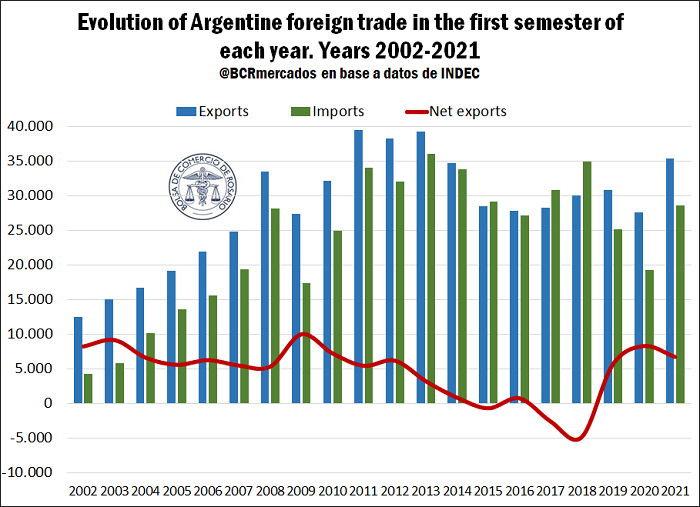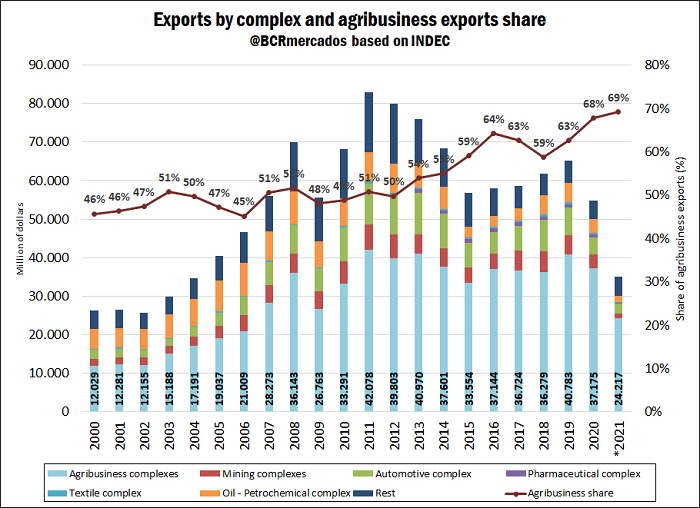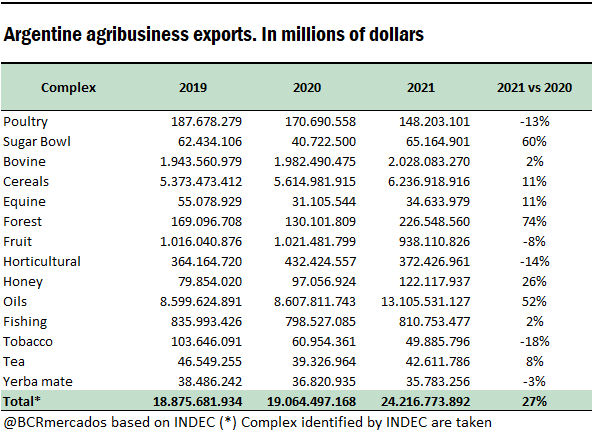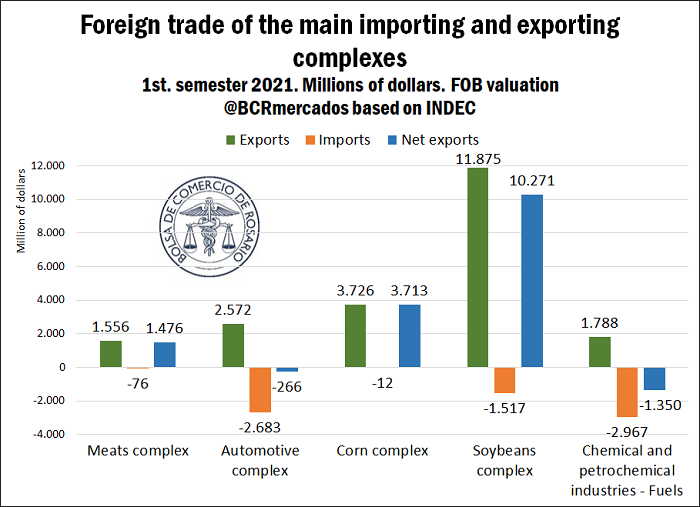Agribusiness exports continue to ease Argentina's external position
Foreign trade is a subject of great relevance in Argentina and, in moments of economic difficulties due to the scarcity of foreign currency, it grabs even more attention because of the need to get around recurrent events of foreign strangulation experienced by our country. At present, our economy shows the need to maintain important foreign trade surpluses to accumulate reserves with the aim of stabilizing the external front and reaching the necessary macroeconomic balances that let us recover the path of growth.
If we analyse the evolution of the foreign trade balance during the first semester of each year, after obtaining strong foreign deficits between 2017 and 2018, the path of trade surplus was resumed in following years. However, during 2019 and 2020, this situation was reached not thanks to a rise in exports, but at the expense of a strong economic recession that affected consumption of all types of goods, including imported ones.
For year 2021, as can be noted on the following graphic, the incipient economic upturn led to a jump in imports of 48.6 % during the first semester, reaching US$ 28,599 million. However, exports showed an exceptional performance, allowing more than the mere compensation of the rise in imports. Only during the first half of the year, global shippings totalized US$ 35,339 million, the highest value since 2013 and a 28.3 % above the first semester of 2020. In this way, a surplus of US$ 6,740 million for net export of goods was reached.
At the beginning of the millennium, the agribusiness sector represented near 46% of the total exports of the country, with FOB exported value of 12,000 million; since that moment to date, exports have tripled to reach in 2020 US$ 37,100 million. During the same period (2000-2020), the total exports of the country over doubled, which allowed for the agribusiness exports to progressively reach a higher share in the total. This way, the record of last millennium was reached with 68% of the total and, in the absence of the second semester, 2021 aims at exceeding it.
If we contemplate the main agribusiness complexes identified, during the first semester of 2021 they increased their FOB exported value by 27% year-on-year, reaching about US$ 24,200 million dollars.
The great export leap is mainly due to oilseeds, whose exports increased by 52% with regards to the first semester of 2020, or US$ 4,500 million more than last year. The exports of the soybean complex alone totalized US$ 11,500 million (+55% in year-on-year terms), mainly because of the increase in the export prices. During the semester, average FOB export prices rose 59.8% for soybean oil and 51.7% for soybean, while meals and pellets increased 36.3% on average, and biodiesel and its mixes, 36.1%. In contrast, the complexes with the worst performances this year so far are the tobacco sector (-18%), horticultural sector (-14%), poultry industry (-13%) and fruit production (-8%). The current performances of these sectors are of concern, because their productive centres are largely located in the country’s interior, within the group called regional economies.
At the same time, it is important to highlight that the main agribusiness complexes are not only important because of their exports, but also because they depend little on imports for their operation. This way, they have a great sectoral surplus that allows for the development of a wide range of productive activities in the country, besides collaborating with foreign currency for the import of energy and consumer goods.
This role of the agribusiness chains gained strong visibility during the last year and a half of the pandemics, as has been highlighted throughout this report. It is obvious that the agricultural sector is a clear major exporter, one of the qualities that highlight it as a sector of key relevance for the economic development of Argentina.



